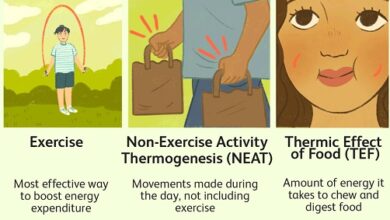What is Social Development skills are related to social development
Development
The term development has different meanings according to the areas of knowledge that interest us . For example, in biology , it is used to refer to the process of growth and maturation of a living being , especially the stage that involves sexual maturation. On the other hand, in the social sciences , we speak of development to refer to the change in the productive conditions of a society , which brings with it an improvement in the living conditions for citizens .
In the latter case, it is a complex concept, which is defined and evaluated according to very different criteria , such as access to education , crime reduction, access to goods and services , etc. In this sense, the purpose of any type of State policies , in principle, aims to achieve the highest degree of development in the different areas of life: the economic, the social, the organizational, etc.
Based on this criterion, moreover, a distinction has traditionally been made between the developed world, made up of the so-called First World or industrialized countries, and the so-called Third World, made up of developing or underdeveloped countries.
What is social development
Social development refers to the evolution and improvement in the living conditions of individuals in a society and in the relationships that these individuals maintain among themselves, and with other groups and institutions that make up the social fabric of a nation.
It consists, as such, in the development of the human and social capital of a country , which covers aspects such as health, education, citizen security and employment, and only materializes with the reduction of the levels of poverty, inequality, exclusion, isolation and vulnerability of the most needy groups.
Social development is promoted by the State from its different agencies and institutions, which are in charge of implementing social protection policies and programs to promote inclusion, and which are designed primarily to benefit those who live in the most precarious conditions.
For social development to be possible, it is important that there be efficient, responsible and committed government management, within a democratic framework of legality and institutional solidity that guarantees its application, effectiveness and continuity.
Thus, a country with optimum levels of social development offers its citizens a high quality of life in the midst of a climate of peace, justice, freedom, tolerance, equality and solidarity, as well as the possibility of satisfying their needs, developing their potential, and realized on a personal level.
Social development would become the next step to the economic development of a country; its ultimate goal is social welfare.
The search for social development is not only a concern of the States in particular, but also one of the pillars of the international management of the United Nations Organization (UN) in the poorest or developing countries.
What skills are related to social development?
Social development prepares for socializing with other people, based on the construction of the following skills.
Empathy
Empathy is the ability to put yourself in the other person’s shoes, to be sensitive and to try to see a situation from the other person’s point of view. Even among adults, putting this skill into practice is a real challenge. If the child is stimulated from an early age to develop an empathetic posture, this will certainly influence their social experience in a positive way.
Respect
Living collectively requires respect for others at all times. We may not agree with other people’s positions. After all, we are all different. However, we have to evolve our thinking to live with the diversity of ideas, cultures and all aspects that still arouse disrespectful attitudes.
Encouraging the child to respect others is more than a nice attitude. It is our duty as social beings. This can start with small things, like learning to take turns, handling frustration well, recognizing qualities in colleagues, etc.
Communication
Communicating effectively is another challenge even for adults. Expressing one’s thoughts and emotions without offending others is part of the concept of assertiveness and is a rare skill. Normally, there is a gap between what we really think and feel and what we can verbalize.
Therefore, favoring the child’s social development also requires encouraging effective communication. This starts with understanding one’s own ideas and feelings, and it also involves other skills such as self-confidence, a sense of argument and, again, empathy and respect.
Group work
Both in childhood and in adulthood, team activities are part of our lives. Knowing how to live in a group is essential to have good experiences and guarantee satisfactory results. This also helps the child to become aware of his role and work on his sense of responsibility and participation, both in the family and at school.



